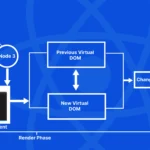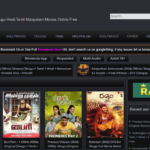Website Visitor Segmentation: Understanding And Targeting Different Audiences
- 1 Importance of Website Visitor Segmentation
- 1.1 Personalized User Experience
- 1.2 Improved Marketing Campaigns
- 1.3 Enhanced Customer Retention
- 1.4 Data-Driven Decision Making
- 2 Types of Website Visitor Segmentation
- 2.1 Demographic Segmentation
- 2.2 Geographic Segmentation
- 2.3 Psychographic Segmentation
- 2.4 Behavioural Segmentation
- 3 Tips For Targeting Different Audiences
- 3.1 Customized Content
- 3.2 Personalized Offers and Promotions
- 3.3 Email Marketing
- 3.4 Remarketing Campaigns
- 3.5 User Experience Optimization
- 4 Wrap Up
In this digital world, it is essential to understand your website visitors. This will help you change your marketing strategies according to your specific demands. One of the best ways to do this is website visitor segmentation.
Dividing website visitors into different groups based on their characteristics and behaviour can provide deep and valuable insights. This information can help you offer a personalized experience that resonates well with your audience.
Moreover, if you want to get paid traffic on your website, it is important to know which segment of the audience you want. This will help you make the most of the money you spend on paid marketing strategies.
Here, we will discuss website visitor segmentation and some top tips for understanding and targeting your audience.
Importance of Website Visitor Segmentation
Personalized User Experience
When you understand the behavior of the different segments of your website visitors, you can offer personalized products, recommendations, and good experiences. If you start using the tailored approach, it will help increase user engagement, improve the satisfaction level of website visitors, and increase conversion rates.
Improved Marketing Campaigns
Understanding website visitor segments deeply also helps in creating effective marketing campaigns. The segmentation process also helps create targeted messages and pick the most suitable channels to reach different groups of website visitors, helping you make the most of your marketing efforts.
Enhanced Customer Retention
Segmentation of website visitors also helps you identify and address the specific needs of your targeted audience. It provides you with an opportunity to provide tailored solutions and personalized experiences to website visitors. This would help increase their engagement, reduce their bounce rate, and increase repeat visitors.
Data-Driven Decision Making
Another benefit of website visitor segmentation is the ability to obtain valuable data and insights that can inform your business decisions. After analyzing the performance of various segments, you can determine multiple trends, optimize your SEO strategies, and achieve the desired results.
Types of Website Visitor Segmentation
Demographic Segmentation
In this type of segmentation, you must categorize website visitors based on demographic attributes like gender, income, occupation, education level, etc. This segmentation helps you understand the characteristics and preferences of various age groups, people in different income brackets, genders, etc. Thus, you can create tailored messages for every group of people and gain their trust.
Geographic Segmentation
Geographic segmentation categorizes website visitors based on their geographical location. To customize your content, you need to consider various factors like region, city, zip code, etc. You can also promote based on their specific needs and geographical interests.
Psychographic Segmentation
This website visitor segmentation is based on the attitudes and lifestyles of the people who are visiting your website. You have to group people with specific traits, preferences, and hobbies.
Behavioural Segmentation
This type of website visitor segmentation is done based on people’s behaviour on your website, such as their browsing behaviour, engagement level, previous purchases, and visits. With the help of this type of segmentation, you can understand your website visitors’ intent and optimize their journey.
Understanding website visitors’ behaviour can help you attract a lot of traffic. Moreover, it is really helpful when you implement paid techniques or buy website traffic. It can help you attract a valuable audience to your website and increase conversion rates.
Tips For Targeting Different Audiences
Customized Content
You should create tailored content that meets the specific needs and demands of people from different audience segments. Different types of content, such as blogs, articles, images, videos, and other forms of content, provide relevant information to your targeted audience.
Personalized Offers and Promotions
When you know your audience well, you can create promotions and offers accordingly. You need to consider their purchase history and preferences to create the best offers.
Email Marketing
Take advantage of email marketing to reach your specific audience. By creating a targeted message, you can engage a specific group of audience members. When you know the specific segment of website visitors, personalized emails can trigger their interest in your products and services.
Remarketing Campaigns
By reaching out to people who have already visited your website and left without making any purchases, you can encourage them to come back. Remarketing helps increase the chances of bringing interested people back to your website and taking the desired action.
User Experience Optimization
Continuously analyze user behaviour and engagement metrics to optimize the user experience for different audience segments. Adjust website navigation, design, and layout to enhance the usability and satisfaction of each segment.
Wrap Up
In conclusion, website visitor segmentation is a powerful strategy for understanding and targeting different audiences. By dividing your visitors into meaningful segments based on demographics, geography, behaviour, or psychographics, you can deliver personalized experiences, optimize marketing campaigns, and improve customer retention.
Utilize website analytics, gather customer feedback, and leverage customer data to segment your visitors effectively. Then, implement tailored content, personalized offers, and targeted marketing strategies to engage each segment and drive increased website traffic and conversions.



















